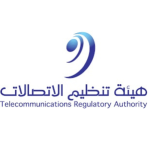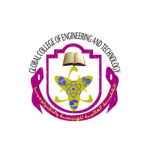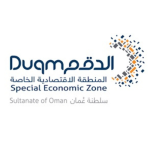In today’s digital age, our reliance on electronic devices continues to grow. But as technology advances, so does the volume of discarded electronics, creating a massive issue called electronic waste, or e-waste. Understanding what e-waste is and why it’s important to recycle it can help us protect the environment, save valuable resources, and even benefit our health. Here’s a closer look at e-waste and the many reasons to recycle it responsibly.
E-waste, or electronic waste, refers to discarded electronic devices that have reached the end of their useful life. These items include everything from old smartphones, laptops, and TVs to larger appliances like refrigerators and washing machines. When electronics are improperly discarded, they become a major environmental and health hazard due to the harmful materials they contain.
E-waste can be categorized into several types:
- Small IT Devices: Phones, cameras, remote controls
- Large Appliances: Washing machines, refrigerators, and air conditioners
- Consumer Electronics: TVs, computers, audio systems
- Office Equipment: Printers, scanners, and copiers
- Lighting Devices: Fluorescent tubes, LED lights, and other bulbs
Each type of e-waste requires specialized recycling methods to ensure that both valuable components and hazardous materials are handled safely.
The Benefits of Recycling E-Waste
Recycling e-waste offers numerous environmental, social, and economic benefits. Here’s why you should consider recycling your old electronics:
1. Protecting the Environment
- Recycling keeps harmful chemicals and heavy metals out of landfills and prevents them from contaminating soil and water sources. This helps protect local wildlife, water supplies, and agricultural lands.
2. Resource Conservation
- Many electronic devices contain valuable metals and components that can be extracted and reused. By recycling, we conserve these resources and reduce the environmental impact of mining and manufacturing new products.
3. Saving Energy
- Manufacturing electronics from recycled materials consumes significantly less energy than creating them from new raw materials. For example, recycling aluminum can save up to 95% of the energy required to produce it from bauxite ore.
4. Job Creation
- The e-waste recycling industry creates jobs in recycling facilities, responsible disposal, and refurbished electronics sales. These roles contribute to the local economy and support sustainable job growth.
5. Data Security
- Recycling electronics through certified programs ensures that all data on devices is securely wiped. Many people don’t realize the data left on discarded electronics could be accessible, posing potential privacy risks.
How to Recycle E-Waste Responsibly
If you’re ready to recycle your old devices, here are a few tips to do it responsibly:
- Find Certified E-Waste Recyclers: Look for certified e-waste recyclers who follow environmentally sound practices for disposal.
- Erase Personal Data: Before recycling, make sure to back up and erase all personal data from your devices.
- Donate Working Electronics: If your device is still functional, consider donating it to schools or non-profit organizations. Many accept working electronics, giving them a second life.
Global Reach
EGRH Oman, an affiliate of the ERS International network serves clients in five countries [Canada,Brazil,Germany,USA,Oman] globally. Our extensive reach enables us to develop and implement tailored solutions and programs for our clients on a local, national, and international.
Elite Customers
Government


Telecommunications



Banks



Educational



Ports


Corporates



CORPRATE LOCATIONS

Sultanate Of Oman
Plot No.Block 78,Raysut Industrial Area, Salalah, Sultanate Of Oman
00968 98190000
info@tadwir.om

ERS INTERNATIONAL TORONTO, CANADA
- CALGARY
- VANCOUVER
- MONTREAL
2450 Lawrence Avenue East, Toronto,Ontario, M1p 2R7
1-855-ERS-INTL(377-4585)
info@ers-international.com

ERS INTERNATIONAL, Brazil

